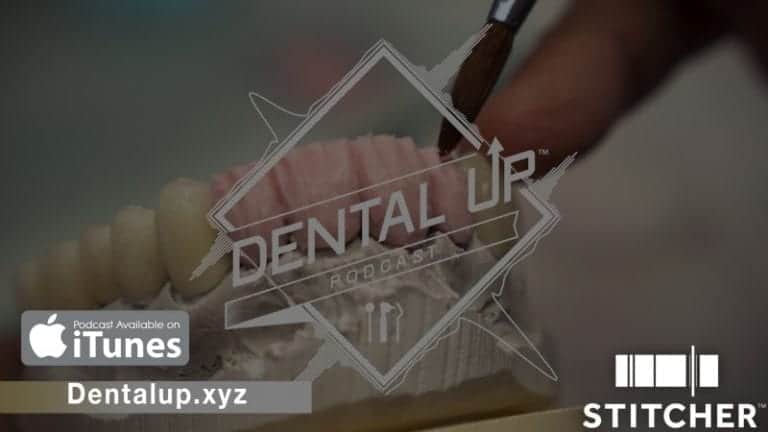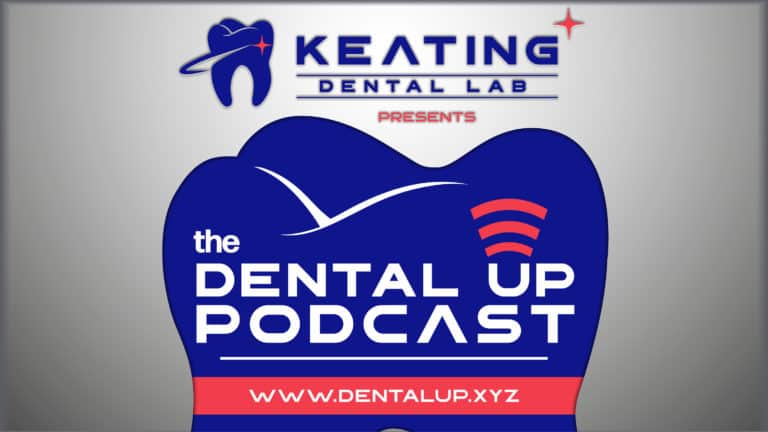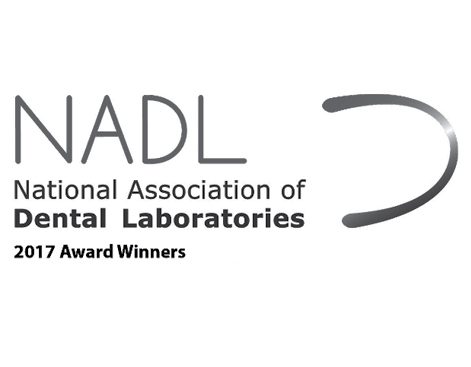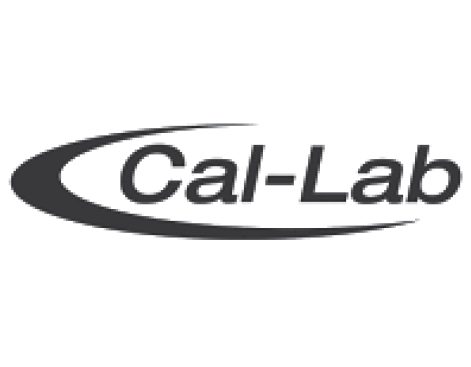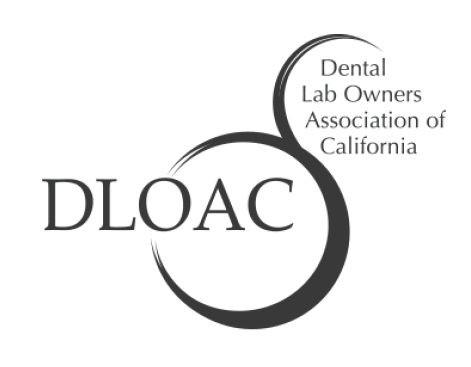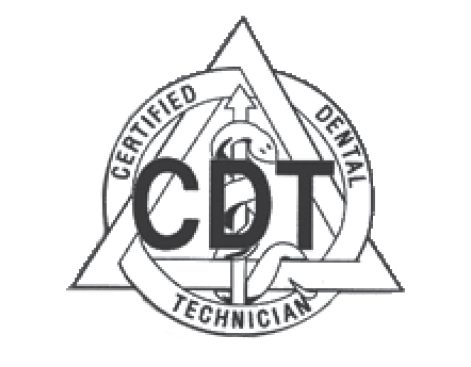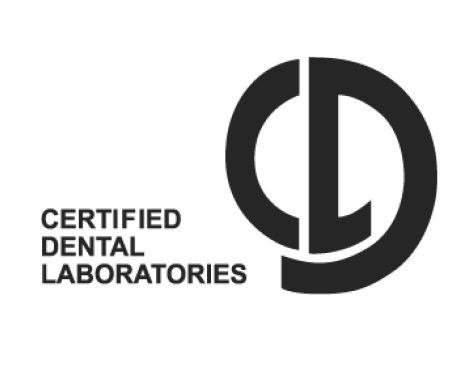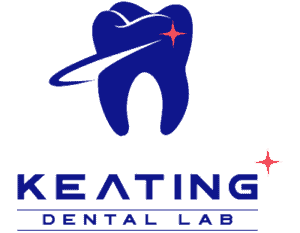With 30 years of experience and two dental practices, Dr. Brian Rista DMD, explains the keys to success through hard work, dedication and an excellent business model. He shares the importance of analyzing past years to gain insight on what needs to be adapted and changed along with building your dream staff and a trusting relationship with your laboratory to deliver quality products.
Full Transcript
Shaun Keating: Hey everybody. Shaun Keating here. I want to welcome you to the Dental Up Podcast show by Keating Dental Art, where anything goes and nothing stays. Get the latest clinical focuses in dental and thought-provoking spins on the most viral topics out there. Join us every week for the most mind-enhancing ways to grow your practice, mixed with lifestyle, sports, news, and topics that don’t suck. Hey everybody. Shaun Keating here. I’d like to welcome you to this week’s Dental Up Podcast. This week, we have Dr. Brian Rista, and he’s from New Jersey. He actually has two practices, one in Tinton Falls and one in Point Pleasant. Dr. Rista, I want to thank you for being onboard with us today. How are you doing? Dr. Brian Rista: I’m doing well. Thanks for having me. Shaun Keating: That’s so cool, man. I can’t thank you enough. I like to start off talking about sports a little bit. We had our basketball tournament, March Madness. That’s over with and it’s time to move on. We got baseball. Around here, we got the Angels and Dodgers. We’re Angel fans, and the Angels are kind of horrible again this season. Starting off kind of bad. All we got is really Mike Trout that’s any good. We got Pujols, man. That’s guy is like heavier than heck and he waddles to first base every time he gets a hit. We got the Masters going. We got the dude, Hoffman, Charlie Hoffman, 40 year old, is lead in the first round. He shot a seven under. I was watching some. He birdied like four or five holes or whatever. They were all like 20 foot shots and everything else. To get these birdies to close out, like 10 foot birdie putt, 19 foot birdie putt. The guy’s really did good, but first round doesn’t mean a whole lot. We also got our Ducks here. They got seated first in the playoffs, so that’s pretty good. The Mighty Ducks. Kind of slow. I’m a big football guy. We got the draft coming up here. I think also the Lakers are trying to lose the last of their three or four games. To get in a lottery pick a little bit better odds, they have to finish in the bottom three. There’s a big uproar about having to throw games and stuff. We actually won the last two games because the guys didn’t want to throw it, and that’s good. I think you got to play hard as you can. Talk to me, man. How are you doing? Dr. Brian Rista: Very well. Life’s been good. Family’s good. It’s all positive. Shaun Keating: Yeah. You guys are crushing it, man. I tell you. I can’t believe your practice. When I was going to do these podcasts, first thing I thought is Dr. Brian Rista and Dr. Bongarzone, your partner. Just for two guys and fricken how you do what you do and it’s just so consistent. It’s a real neat thing. I can’t wait to talk about that a little bit. Dr. Brian Rista: I appreciate it. A lot of work goes into it. It’s every single day. It really is. I wasn’t theoretically treating patients today, but I was in that office for three to four hours this morning. Shaun Keating: Can you believe that? Dr. Brian Rista: I work tomorrow, which is Saturday, so it’ll tell you a little something about what we do and how we manage things. Shaun Keating: You really do. You work every day. There’s worker bees and there’s non-worker bees. There’s a lot of guys that like to work maybe two days, three days and it’s a beautiful lifestyle, but I just have always noticed with you, you’re just always organized and you’re in that office. You’re there morning to night. You really love it though. When I talked to you, really got to meet you personally, and you really love what you do and you really put a hard effort every day in every patient. Dr. Brian Rista: Correct, because that’s the way you’re measured every single day. We’re in a profession, Shaun, where you’re really only as good as the last thing you did for someone. When it really comes down to it, you have to be consistent and pretty much on your game every day. Shaun Keating: Yes, yes you do. I say that too. I’m always as good as the last crown I did. I did all sorts of work for years, and then I send you some bad crowns, it’s like, “Ah.” Every day is like the playoffs. Dr. Brian Rista: Correct. It’s a profession/business where you need to be pretty much on it all the time. What we’ve done, the key to the success, is not only hard work, but also having a business model in place and following that model. It may not be perfect, but it’s a lot better than it is bad, if you will. We’ve taken that and just rode with that to a different level. Shaun Keating: Absolutely. Did you take any business management courses? Is there anyone in particular that you kind of went off of a style and made it your own? Can you tell me a little bit about that? Dr. Brian Rista: What I did was when I got out of dental school, I realized I was deficient in two areas. Number one, you think about it, you go all the way and get a PhD, which is what a dental degree is, and I never had number one, a computer course, which that was interesting. When you first get out, you become almost computerized and you never had any training in it. That was number one, but number two, probably more important, is you’re in a profession where you have a potential to make pretty good money or a decent living, and the thing that I noticed immediately is you better educate yourself on managing this and also managing your practice. Through that, I took some business classes. The other thing that I did is I read certain individuals, their works. It was very diverse. I read somebody, like a Wall Street individual, like a George Soros, and then on the other side of the corner, I read a book on L. Ron Hubbard. I like to take the good points of each one of them and incorporate it into the business. Things that I think would work, we incorporate it. Things that I didn’t think would be applicable to dentistry, we just kind of pushed that aside. That’s the model that I put in place and that truthfully my partner, to his credit, has followed along with me and it’s been very successful. Shaun Keating: It really is. Tell me a little bit about your staff in both your practices. Dr. Brian Rista: There’s anywhere between 13 to 15 of us. There’s the two doctors. We employed four hygienists, two are full time, two are part-time, four assistants, and another four to five front staff, where each one of them, they’re all cross-trained, but they all have specific tasks that they’re responsible for. That’s how the practice is able to, in a given day, like let’s say myself, Dr. Bongarzone, and two hygienists are there, we can put proficiently and quality 50, sometimes 60, 65 patients in and out the door and do it in a very efficient, quality manner when everybody has to be responsible for certain tasks, and that’s the only way that it really gets done. Shaun Keating: That is so cool. Is that per practice? Dr. Brian Rista: The Tinton Falls practice is where I started. Now that’s 30 years. That’s the bigger practice. Point Pleasant is a smaller practice, generates a considerable revenue for only being really open two days a week, 18 hours a week, if you will, maybe 19-20 hours, something like that. It’s 18-20 hours. We have then two front staff, two assistants, and a hygienist, with the one doctor. It’s a smaller setting, but it is just as proficient and busy as the office of practice, just on a lesser scale. Shaun Keating: Unbelievable. How does that work? I know when we meet up in New York and stuff, how long does it take? Where the heck is Tinton Falls and Point Pleasant? Is it like by the Jersey Shore? Is it by the Bada Bing, by the Tony Soprano guys? Where is it there? Dr. Brian Rista: Point Pleasant is actually my hometown. It’s the Jersey Shore. It’s considered the Jersey Shore. The practice, literally if you drew a line to the east, it’s literally 1.6 miles to the ocean. It affords you a very, very good/quality lifestyle. The other practice, Tinton Falls, is actually in what’s called Monmouth County, which is not far from Asbury Park. The practices geographically are only 14 miles apart, but they both have their own niche, if you will. They have similar philosophies, but they just have a different feel and a different niche to them. Shaun Keating: No kidding. Dr. Brian Rista: [inaudible 08:04] Shaun Keating: Point Pleasant, so you grew up there and stuff? Dr. Brian Rista: We moved here 25 years ago and this is where we decided we’re going to raise the family. I grew up in North Jersey, actually, right outside of Manhattan, about 10, 15 minutes outside of Manhattan. Shaun Keating: No kidding. What college did you go to for dental school? Dr. Brian Rista: It’s now Rutgers. It used to be called The University of Medicine and Dentistry of New Jersey, but since I left, it’s now considered part of Rutgers University. Shaun Keating: What a trip. When you’re in Point Pleasant, it seems like more of a seaside community and stuff. Do you have any particular restaurants? I want to get into food for a second. What kind of good seafood place is there? You got some little places you go to at lunch or what, or dinner? Dr. Brian Rista: We have a few places in particular we like to go to. Some of them are BYs, which stands for bring your own bottle. I know you don’t really have that on the west coast, but it’s a concept here where you may pay a little bit more for your food/entree, but you can bring your own liquor and there’s no charge. Shaun Keating: No kidding. That’s crazy. They would never do that in California. Dr. Brian Rista: It’s a concept. I don’t know if it’s unique to the east coast, but definitely here in New Jersey. I’m assuming because it’s a shortage of liquor licenses relative to the number of establishments that some of the establishments allow you to do that. We find that they’re some of the better restaurants because you have to be successful with your food because you don’t have liquor or anything else to fall back on. Shaun Keating: No kidding. Dr. Brian Rista: We like the concept. We certainly take advantage of it. Shaun Keating: That’s good. I’ve eaten with you a few times and you eat healthy and you take care of yourself quite healthy and you probably look at me and go, “Shaun.” I’m ordering two, three plates and I’m telling you, “Well, just tastes.” Dr. Brian Rista: I cheat a little bit. I think we all do. It wouldn’t be life if we didn’t cheat a little bit, but I try to take care of myself for the simple fact, number one, want to stay healthy, want to live long. The second reason, I don’t know that I could work the schedule that I do if I wasn’t in a better shape, if you will. Some of my days would consist of, if you really want to know, if I stay technically at 9:00, I’m usually starting treating patients at 8:00 because it’s so busy, I’ll get there at maybe 7:00, 7:30 in the morning, and I will not finish until 7:00, 7:30 at night. Shaun Keating: Damn. Dr. Brian Rista: I’m scheduled to get an hour break, but in this profession, what you see is not always what you get. Sometimes I wind up 15 minutes, sometimes I’ll get a half hour break. Sometimes I’ll get the full hour, but not always. You have to be prepared to work a long, long day. It’s good, it’s productive, and I don’t know that I would do it any other way. Shaun Keating: That’s just so amazing because you really do, you work hard and getting up earlier, I remember you talking about going and working out before you even get to the office as early as you do. To work those 10, 12 hour days, man, after 30 … You’ve been practicing about as long as I. I was like ’84, but man, I remember those 12 hour days just forever and ever for about 15 years of my life. It was 6:00 to 6:00 every day. A lot of people don’t have that work ethic in the younger generation coming out and they’re just looking for the easy way, but to see you pushing that rock up the hill 30 years later but with the passion that you have … I have dentists from all over the world, the United States especially, sending me work, and you were always top one, two, three, and I don’t want to just bring all of my top guns in, but you’re just so unique and I want to because you do really good high end stuff. You always picking the best products and you really keep on top. When we’re off a little bit, “Shaun, my contacts are [inaudible 11:59]. Shaun, my occlusion”, you’re on the phone with me and it’s a neat thing. Man, how do you get these dentists? People will say, “Oh, it’s the area. I’m in a strip mall. I got good visible blah, blah, blah.” Do you do marketing, or is it a lot of word of mouth? What is it that you have such a staff to be able to see 50, 60 patients each day and to give them the attention that they need, and truly, people seeking you out from all over to come to your practice? What do you attribute to it? What can you say? In the early days, did you do marketing and then you just rely on word of mouth? I know your staff probably has all sorts of recalls and working the patients and getting them all that, but tell me a little bit about if, for some of my younger guys starting off and even some of my older guys trying to get more life into the office … Before in the old days, doctors didn’t really have to market much, that people would come. Last several years, it’s been quite competitive and people are changing their ways on how they … “Oh, I need a coupon” or “I need this” and on and on with all the retail type brick and mortar places, and that’s getting brought down into the dental world a little bit with people in moneys, to say. Tell me a little bit about, Rista, some of your marketing efforts. Other than just the great work and service, what do you attribute to your success? Dr. Brian Rista: The first thing is years ago when I first started, we did market. No question. The key today, though, is where we marketed years ago and we no longer market anymore, thank god we don’t have to, what I attribute it to is exactly what you were alluding to. We give the patients a very quality service at a reasonable fee. I think if you approach your patients and your staff … Again, now the key is the doctor, yes, it starts with the doctor, but you need a good, consistent staff also that will help build you also. We have that. It’s a very simple equation today. Number one, you have to be willing to work. Dentistry is not an easy profession. We just happen to make it look easy. Think about really what we do. Bottom line is we give patients, we treat them well, give them a good service at a fair fee, and it will build itself over time, but you have to also be willing to put the time and effort in. That’s the key. Shaun Keating: It really is. Dr. Brian Rista: In this business, I would tell any young dentist what it’s going to take to get to a very successful practice. Number one, it’s going to take you three to five years just to hone your skills in private practice. I’m not talking about dental school. Three to five years. It’s going to take you another few years from there to develop the speed that you need in order to be able to do quality work, but also make a comfortable living. I consider it a five to a seven year process. I stand by that. Any young practitioner or young dentist who is a recent graduate, I actually explain that to them and hopefully it hits home. You hope it does because our profession is consistently changing and it is changing for the better, and maybe business-wise, not so good as we speak. In the laboratory and you look at how much work goes elsewhere, not a big fan of that. You have to adapt also. Every five to seven years, you look back and figure out what we need to maybe add to the practice, maybe an area that maybe we don’t need to concentrate as much on. That’s how to stay successful. You have to adapt, maybe rebalance, readjust what you’re doing. Shaun Keating: Just what you said, and I’ve said it so many times before, it’s the bedside manner. Just treat people good. Treat them like your family. Treat them like your brother, like your sister. Take care of your employees. I know that we have some of the same people we’ve talked to for years. You don’t have turnover. Your staff, you call your staff and they’re all uppity, just kind of happy people in a way. You can’t really fake that. It’s just something I get it with a lot of practices that are successful. Their staff is a bunch of people that are just, they’re there and it’s a people service. It’s so neat. Take care of your people. Dr. Brian Rista: Here’s my take on it. This is, again, what I would tell anybody. Yes, the doctor has to make the tough decisions to do the treatment, but you need to work, and the key is with, with a really good, refined staff. If you can find it and develop it, nurture it, and culture it, it’s your greatest asset. Besides yourself, your staff is your greatest asset. No question. Shaun Keating: It so is. I get back to football again and Belichick and Brady and all the damn guys sticking together and working at as a cohesive unit. There’s too many guys that I think, and not only in dentistry, but in just life, when they’re running businesses … I got friends that run different businesses and they’re just trying to pinch a little bit here and there, and I know we all need to be profitable, but these people are all trying to make a living too and they shouldn’t really think about money. Money … Should take care of them to a point where they’re really, you’re not being stingy on them. You’re trying to give them the top pay if you can and pass the love around and pass the winnings around. As we work hard, we get rewarded on this, and it’s important to take care of your people so they’re not looking for other jobs. “Well I can go over to Dr. Thomas’s office and he’s going to give me a dollar more an hour.” You don’t have to worry about that because it’s more of a thing they feel in their heart after working with you and it becomes kind of a family thing. It’s important to take care of your staff. So many guys are trying to cut. “Oh I got to pay this one this much and keep it down here.” They’re trying to save pennies. They’ll lose dollars at the end of the day. Dr. Brian Rista: Right. When a staff member leaves you, if you want to put it in dollars and cents, it costs you thousands. Those [inaudible 18:31], little love, little kindness, little extra in the envelope, it pays big dividens. It really does. I can’t stress it enough. Go back to football. I’m not a Patriot fan, but I will tell you, that’s the best run organization in sports, bar none. It has been a model of consistency for the last, what, ten to fifteen years, Shaun. Shaun Keating: It really is. Dr. Brian Rista: There’s no denying it. Whether you like the franchise or not, they do it well. Shaun Keating: They really do. It’s a well run program. With me, I run my company like a football team. I grew up, like at seven and eight years old, I had three older brothers and they put me into football. I was the only one really into sports. I just was able to get my energy out. Just from a young age, to work with a team that you’re only as strong as your weakest links and just the comradery and the commitment, you just really, I learned so much with it, through high school even. Every day for the last 40, probably 45 years, I thought of football one way or another and it’s been part of my life. I run my lab, I swear it. It’s like you got your front office, you got your running backs, you got your quarterbacks, you got your special teams, you got your O line, you got your linebackers, and we kind of break down our people that way. I never went to college or nothing. I did a few business classes with this group called Tech. It used to be called Tech, now it’s called Vistage, and you get like 10, 15 owners of different businesses. You meet once a month for eight hours and come together and you just talk about business. All businesses are the same at the end of the day. It doesn’t matter if you’re in engineering, when you’re running companies, it goes back to what we’re talking about. Just come in with a consistent game plan and to work with the people and get them educated and keep taking care of them. It’s just kind of like that with me with the way I run my labs like a football team in a way. Gosh, if I could run it like the Patriots, it’d be neat, but we try to improve every day. We still have our ups and downs. Working with humans, we all have our highs and lows and it’s hard to keep them all rousted and together and keep them positively motivated, but we do a pretty good job. Dr. Brian Rista: I think so. That’s why we have a good partnership together. Shaun Keating: How did you find out about us? I can’t remember back when we started, but how did you hear of us and how did that come about? Dr. Brian Rista: All right. If you go back a way, I’m going to take you back maybe 25 years ago, you were elsewhere at the time starting out. You were managing a crown and bridge department for a laboratory, and we did some work with that laboratory. I spoke to you on multiple occasions on the phone back when and liked your style, liked your approach. The work where you were was very consistent. I know there was changes in both of our lives where we went separate ways with certain things. Lo and behold, it’s gotta be about seven or eight years ago I’m thinking, we had an issue with laboratory and my partner came in and said, “Brian, we need to make a change.” I said, “I agree”, and I said, “I’ll tell you what. Dr. B, we’re going to send the lab work out to Shaun.” He said to me, “Okay.” I said, “He has his own laboratory. It’s a toned down version of what he used to be in. From what I do know, it’s excellent quality. Let me call him.” Called you, send boxes, started sending cases, and the rest was history. Shaun Keating: Gosh. Thank you Lord, man. That’s so awesome. Dr. Brian Rista: It’s a relationship built on number one, trust, number two, quality, and just number three, a good relationship back and forth with the people that work with you and the same people that work with me. It’s turned out to be a very, very, very good relationship that we’re very happy and very proud of. Shaun Keating: That is so cool. I can’t thank you enough. We don’t take it for granted. We know that you get hit up probably so much. As I get all these dental lab guys listening to my podcast, I’m throwing all my doctors’ names on there, I’m probably going to get solicited and mailers. Throw those mailers away, man. Don’t be looking at them though. It’s tough for us. Everything, it’s so competitive. There’s only a certain amount of dentists out there. They’re locked and loaded with their labs if they’re any good and if the labs any good. Doctors don’t like to switch. It’s not an easy thing to get a doctor. Especially in the industry of gambling. they’ve got certain guys called whales, and you’re a whale. It’s a good thing. You could equal like 20 dentists that do a grand or two a month as like the average most dentists. You really got a sharp practice and it’s just so … I think a big thing too, dude, is you’re an Impregum guy. I love Impergum. How long have you been using Impregum? Forever, huh? Dr. Brian Rista: My entire career, 30 years. Shaun Keating: Can you believe that? Dr. Brian Rista: I never had any reasons to change. If there was a reason to change … Part of the business model is what we have is when something works and it works well, we don’t change it. Shaun Keating: Exactly. Dr. Brian Rista: That’s how you’re able to continue on your path. It’s when you start to deviate from things that are working for you, that’s when you open yourself up to maybe some issues within your practice, so we don’t do that. It’s not something- Shaun Keating: That is just so good. That’s just great, great advice, because I got the same guys, like you said. They stay with Impregum, they stay with the burrs that they’ve used on how to do their prep. They do their [inaudible 24:19], they do this, and it’s just such a precise … It’s not variating off, “Let’s try this this time.” It’s finding a system that works and stick with it. Too many guys deviate, like, “Oh, I can get $3 less on the impression material for this month. My vendors tell me this.” Impregum, we know, is more expensive than probably everything out there, but you know what? You can’t really look at that. You got to look at if it works. The $2, $3 difference, you’re going to lose that somehow if you’re going with … It’s just something that when they’re looking at certain things, trying to … Like you said, most guys should do a business books here and there from different guys. Get a feel of people because there’s a lot of guys that learn a lot of theory in dental school, then they got to learn their hand skills, three to five years plus. They say to master anything, it takes about 10,000 hours, and that’s about 7 years straight of 60 hour weeks. That is just so good when you say that, that you’re going to get your hand skills, but then it’s the business part of it. My old boss, like we talked about, back in the day, one thing he did teach me, he was a great mentor for me, but yet one thing he did teach me is, “In your business, Shaun, invest in your business. Don’t be going off trying to think, ‘I’m going to do this. I’m going to invest in real estate.’ You can do that down the line, but you’re first 10, 20 years, everything goes back into the business and it’s just nothing but business, and then money will come to you. Don’t chase the money. It’ll come, but just put everything back in your business, don’t try to be going off investing, ‘I’m going to invest in silver, I’m going to invest in this’, where you really know nothing about. Do what you know best with your field and invest every cent you got in that and it’ll come back tenfold to you.” Something that I’ve always felt that way. Dr. Brian Rista: That’s a great piece of advice. I got that piece of advice years ago also. There is no greater person/individual to invest in than yourself. That’s one of the best piece of advice I ever got too and I follow that. That’s why I’ve had multiple practices in my career because you’re investing in what you know and what you do best, and therefore, you do have control. Stocks and securities, you don’t have any control over it. One of the great assets of doing dentistry, you do have control over it. Shaun Keating: Absolutely. Dr. Brian Rista: The rest of it is the control we put in your hands to make sure the work is good stuff. Shaun Keating: You know I make you look good, baby. It’s so cool, man. What do you think? We’ll wrap this up, but what do you think of the future of dentistry? A lot of digital stuff, a lot of the chairside stuff. What’s your take on that? I know you know everything that’s going on, but what do you think on the future of dentistry looks like, especially when it comes to digital? Dr. Brian Rista: It’s a great question. As far as digital, I think digital is here to stay, but technology, Shaun, has to be two things. Number one, it has to work, and number two, it has to be cost effective. One without the other, it’s not going to work. As long as digital comes and does work, do what in fact it says it’s going to do, and, again, the key is cost effective, it’s here to stay. No question. As far as the clinical end of dentistry going forward, the way I see it, the younger generation of dentists is going to have to be much more broad spectrum, broad educated, meaning this. Not only are they going to have to do the good restorations and things like that, but they’re also going to have to be able to dabble in some orthodontics, and I really believe they’re going to have to dabble in some oral surgery to capture that 30 and under market that does not seem to have the decay or the restorations that are generation had. I just don’t see it. Shaun Keating: Yeah. Dr. Brian Rista: You’re going to have to be a little bit keener, continuing education, and also your skills. You’re going to have to be able to have a broader scope of skills than what are generation had. Shaun Keating: Are you doing your own endo and stuff? You trying to keep everything in house with that when it comes to maybe even on the ortho, like a Powerprox? Are you doing that? Tell me a little bit about some of that stuff. Dr. Brian Rista: Believe it or not, what our practice is is pretty much a heavy based restorative practice. You see it first hand. Number one, it’s preventative. Number two, restorative. We do some cosmetic work, but we do refer out molar endo, level three and four cases of orthodontics. I do level one and two in the office. That was a little bit of an expansion that I’ve done in the last five to seven years to keep things a little more exciting, maybe incorporate some fun dentistry into the practice. We don’t have any problem referring certain specialties out. Difficult third molars we send out. We do try to keep as much in hand as we can, but when it’s to the benefit of the patient to be referred, we refer. No question, hands down. We do what’s in their best interest. Shaun Keating: That’s so cool. I always say … My brother, who’s an endodontist, he always says, “Shaun.” He’s in a town of like 300 dentists and there’s only like two practices limited to endodontics and he’s one of them. He said, “I get all the tough ones, Shaun.” He gets all the ones that are just tough and all the dentists, the GPs, are doing all the easy, peasy. You got the big boy pants. That’s what you get pay for. It’s tough when you’re stepping out of your comfort zone and you’re doing it just to do it. That’s not right. I think if a guy can do what he feels good and refer out without any problems, you’re going to sleep a lot better, the patients are going to get a better benefit. Too many times they’re trying to do things that they shouldn’t. I see that, trying to push it. Dr. Brian Rista: I’ll share this with you. Number one, in this profession, you go with your strengths. What you do best, you expand on that. The second is, I’ve always believed in this, patients have problems usually when general dentists are doing something that he or she should not be doing due to maybe a lack of experience or training. That’s an area where you can really fall into a pit and get hurt or get well. We definitely avoid those situations. Shaun Keating: Oh man. Dr. Rista, I know it’s your Friday, you need to get out of that office, dude. You need to take your wife out for some drinks and some food, man. It’s Friday in the Big Apple. Dr. Brian Rista: It is, but I’m working tomorrow, but I’m going to take my run at about 4:00 this afternoon and [inaudible 31:04] to eat tonight, and we’ll work tomorrow. Shaun Keating: How crazy is that? How far are you running now? I forgot, you used to run a lot. You still run every- Dr. Brian Rista: Three times a week, usually it’s an average every week of about 15 miles. I’ll run maybe about four today, maybe six on Sunday, and maybe five another day. It just depends how I feel and where I want to go. Shaun Keating: Jesus. I don’t feel good enough to walk down the block. You’re running. Dude, you’re my idol, man. Rista, fricken I love you dude and I can’t thank you enough for everything, man. Dr. Brian Rista: Thank you for having me. I appreciate it. This was a good experience. Thank you. Shaun Keating: Anytime. Please let me know whatever I can do. Thanks again for coming on our podcast this week. Everyone out there, I want to thank you for listening in and tuning into us on our podcast this week. If there’s any doctors out there that ever want to try to get on the Dental Up Podcast with us, go ahead and just reach out [email protected]. Remember to subscribe to us on iTunes on the Dental Up Podcast. Leave us a review. I want to thank you again. Dr. Brian Rista, you’re the man. I love you, man. Have a great weekend. Dr. Brian Rista: You too, Shaun. Thank you. Pleasure. Shaun Keating: All right. Bye. Hey, I want to thank everybody for joining us on the Dental Up Podcast show this week. Be sure to follow us on Facebook, Instagram, and Twitter, or search Dental Up Podcast on iTunes and get our weekly feed. Don’t forget to visit keatingdentallab.com/promo for exclusive offers. Keating Dental Lab is a full service dental laboratory and we’re nationwide. We would love for you to send us a case so we can show you the Keating Difference. If you dig what you’ve heard, please leave us a review on iTunes, and we’ll be back next week.


